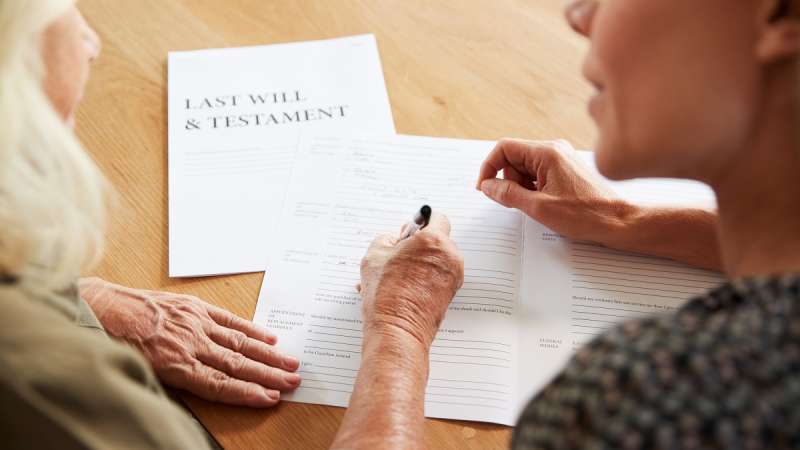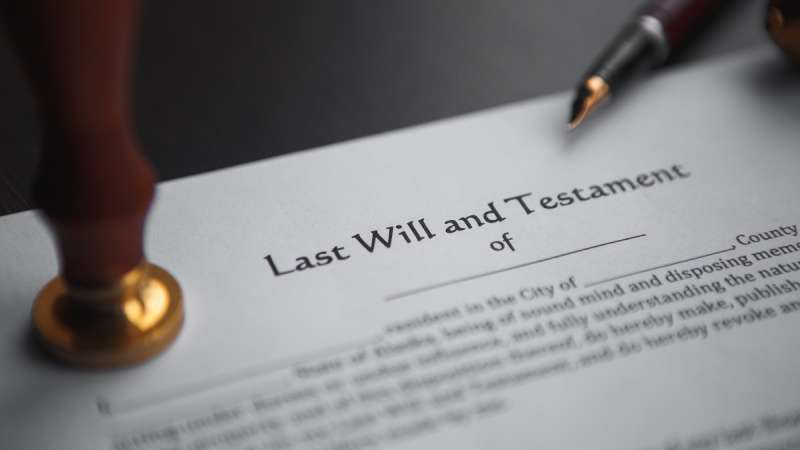Defending a Validity Challenge
Validity challenges
The starting position is that if a Will appears to have been executed properly, then it is presumed to be valid. There are strict requirements relating to the signing (or, more accurately, the “execution”) of Wills and in England and Wales, we are generally free to make a Will in any terms we wish.
There are several grounds to challenge a Will:
1. Testamentary capacity
The test to establish whether or not someone has the capacity required to make a Will was set down in a case decided in 1870 (Banks v Goodfellow). Broadly speaking, a testator is required to be able to:
- Understand the nature and effect of making a Will.
- Understand the extent of the property they are disposing of.
- Consider the claims of the people they might be expected to name in their Will.
The testator should also have no mental disorder that could cause them to make a Will they would not otherwise have made.
If a testator does not satisfy all of these requirements at the time that they gave instructions for the Will, it is likely to be invalid.
2. Undue influence
If a testator was coerced into making the Will in particular terms that they did not want, then the gift obtained by undue influence is liable to be set aside. Successful claims for undue influence are more common in the case of someone who is vulnerable as a result of impaired mental capacity or otherwise failing health. This is a difficult claim to bring. Persuasion itself is not unlawful, so it needs to be shown that someone has overpowered the testator and caused them to make the Will they made.
3. Want of knowledge and approval
In very general terms, this relates to whether the testator knew, understood and approved of the contents of the Will at the time they signed it.
4. Lack of due execution
The first ground to consider when reviewing the validity of a Will is whether it was executed (that is, signed and witnessed) correctly.
The requirements of executing a valid Will are set out in section 9 of the Wills Act 1837:
- A Will must be made in writing and signed by the person making it (or, in certain circumstances, by someone on their behalf).
- The person making the Will (the testator) must intend for the Will to be valid when they sign it.
- The testator’s signature must be acknowledged in the presence of at least two witnesses who must also sign the Will.
If any of these requirements are not met, then the Will was not properly executed and is not valid.
5. Forgery
It may be argued that the signature of the person who made the Will and/or one of the witnesses is not genuine. If that is the case, it cannot be a valid Will.
6. Fraudulent calumny
If someone makes false comments about another person which lead to the testator excluding that person from their Will, that Will could be set aside.
If someone alleges that a Will is invalid, they will usually be expected to make a claim. Their first step will often be to enter a “caveat”, which prevents the executor from extracting a grant of probate. At this stage, it is usually worth exchanging letters to establish each side’s position, and potentially engaging in settlement negotiations.
If they enter a caveat but do not bring a claim, there are steps the executors can take to progress matters. These include “warning off” the caveat, which may be followed by court proceedings, and applying for an “interim” grant of probate. Please contact us to discuss your circumstances.
Claims under the Inheritance Act 1975
Beneficiaries
If a person’s Will (or the rules of intestacy) mean that you are due to receive a share of their estate, you are referred to as a “beneficiary”.
A claim under the 1975 Inheritance Act could reduce what you receive from the estate. If you are a beneficiary and someone makes a claim, we can advise you in relation to defending that claim. We can often help to resolve the position quickly and before costs escalate.
Executors
Executors who do not benefit from an estate will usually adopt a neutral role in claims under the 1975 Act. They are still obliged to be a party to the litigation and to provide certain information for the benefit of the other parties and the court. The cost of obtaining legal advice in this regard is normally a legitimate estate expense and is therefore paid by the estate.
Although we have used the word “executors”, the position is the same for administrators/personal representatives.
Testimonials
Why Work With Our Contentious Probate Team?
- We have been ranked as a Top Tier law firm by the Legal 500 for the last seven years.
- We have been recognised by The Times and The Lawyer as a Top 200 UK law Firm.
- Price transparency - we provide our clients with clear cost advice at the outset with ongoing updates throughout the matter. Sometimes, we can pursue a contentious probate claim for you on a no win no fee basis.
- The contentious probate team is led by experienced Partner Helen Thompson, a member of STEP (the global professional association for practitioners who specialise in inheritance and succession planning) and has completed the Advanced Certificate in Trust Disputes.
- All our Contentious Probate solicitors are members of the highly accredited Association of Contentious Trust and Probate Specialists ACTAPS.
- We have the largest team of contentious probate solicitors in the Northwest, ensuring you receive the best legal advice and support.
- We are a full-service law firm operating from a one-site office, which means our teams communicate effectively and efficiently, and our contentious probate lawyers can draw on support from other specialist lawyers, such as property, private client, agricultural, family, commercial and corporate lawyers.
- We use the latest technology to ensure that we are working as efficiently as possible and that geographical distance is no bar to us from providing you with excellent client service.
- Please take a look at the Myerson Promise for further benefits of working with us.
Meet Our Contentious Probate Solicitors
Home-grown or recruited from national, regional or City firms. Our contentious probate lawyers are experts in their fields and respected by their peers.
Contact Our Experts
You can contact our lawyers below if you have any more questions or want more information:






